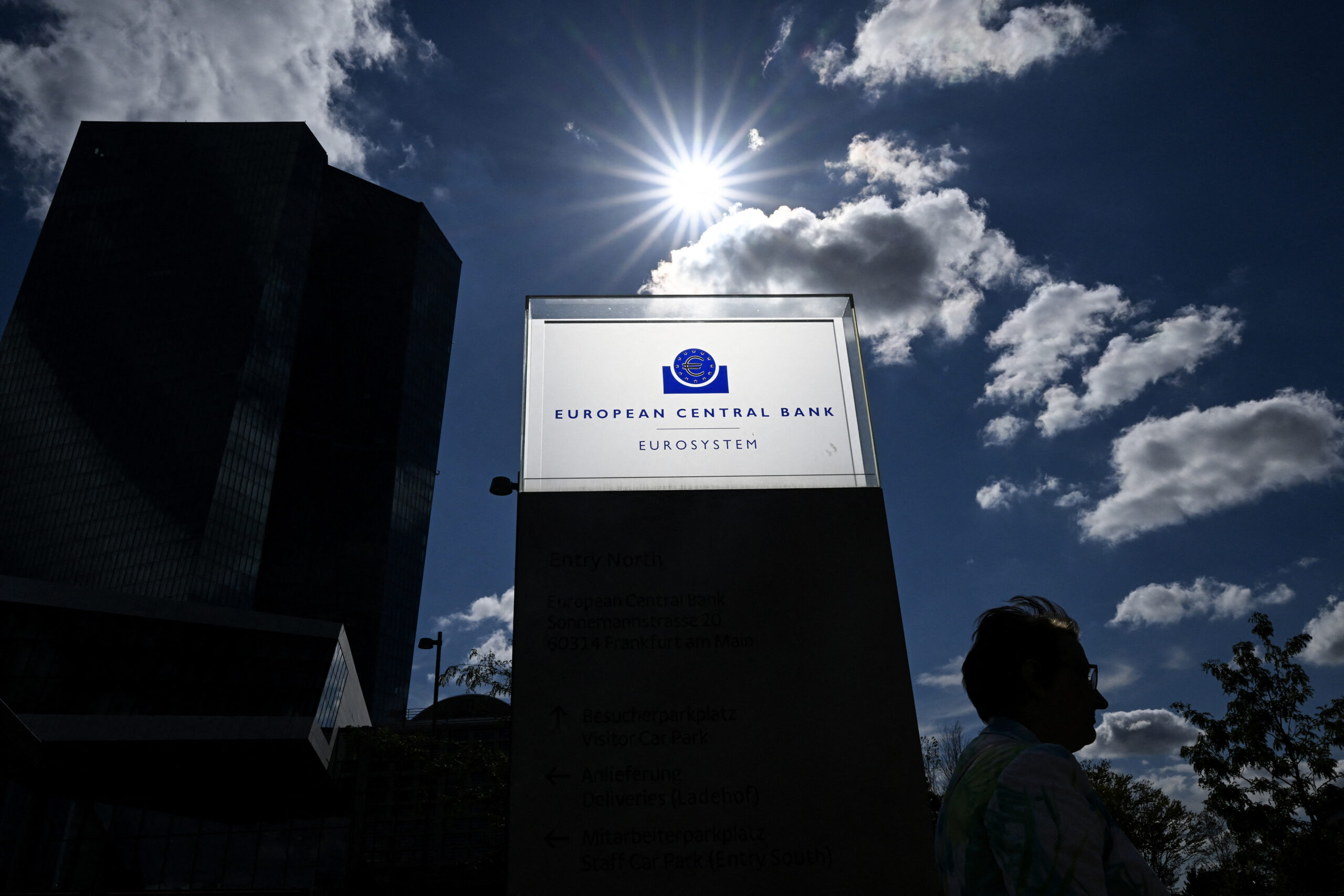Amid weak eurozone and political turmoil, ECB to cut rates again

Clouds hang over the European Central Bank (ECB) building on September 14, 2023, ahead of the meeting of the governing council of the ECB in Frankfurt am Main, western Germany. (Photo by Kirill KUDRYAVTSEV / Agence France-Presse
Frankfurt, Germany — Faced with a stuttering economy, political turbulence in the eurozone and the prospect of renewed trade tensions with the United States, the European Central Bank is Thursday set to cut interest rates again.
It would be the ECB’s third straight reduction as it increasingly focuses on spurring lending to boost consumer spending and business investment in the 20 countries that use the euro.
After hiking rates aggressively from mid-2022 to combat runaway energy and food costs, policymakers have turned their attention to cuts as inflation eases and the eurozone economy weakens.
READ: Global stocks mostly fall ahead of ECB, US inflation data
Recent worse-than-expected data had fuelled speculation the ECB could deliver a hefty, half-percentage-point cut for the first time in its easing cycle.
Article continues after this advertisementInflation pressures are still a concern however — the indicator rebounded above the central bank’s two-percent target in November — and analysts now expect the ECB to continue at the same pace as before, with a quarter-point cut.
Article continues after this advertisementING economist Carsten Brzeski said a quarter-point reduction would follow the ECB’s usual “cautious” approach and amount to a “typical European compromise” between supporters of keeping policy tight and those wanting to ease faster.
While a bigger cut would send “a strong signal that the ECB is seriously trying to get ahead of the curve,” he predicted the central bank would be reluctant to go too far.
It will be the Frankfurt-based institution’s fourth cut since June, and will take the key deposit rate to three percent.
Growth jitters
ECB officials have repeatedly raised concerns about the weakening growth outlook in the single-currency area, signalling a shift away from being laser-focused on bringing down inflation.
Eurozone inflation peaked at 10.6 percent in late 2022 after surging in the wake of Russia’s invasion of Ukraine and amid post-pandemic supply chain woes.
It fell back under the ECB’s two-percent target in September but rebounded in subsequent months, reaching 2.3 percent in November.
Analysts expect the weaker outlook to be reflected in updated ECB economic forecasts, to be released Thursday alongside the rate call, and are predicting small downward revisions to growth and inflation estimates.
Political headwinds are adding to the tricky terrain that rate-setters will have to navigate.
Germany is heading for elections in February, seven months earlier than scheduled, after the collapse of Chancellor Olaf Scholz’s long-troubled coalition last month.
Even before the latest turbulence, the eurozone’s biggest economy was struggling with a manufacturing slowdown, and its anaemic growth rates are weighing down the broader single currency area.
Meanwhile in France, the eurozone’s second-biggest economy, the government of Michel Barnier was ousted last week in a historic no-confidence vote, deepening the country’s growing political and financial chaos.
Trump return
Adding to the troubled picture is Donald Trump’s impending return to the White House.
He has threatened to slap hefty new tariffs on all imports to the United States, and has previously singled out the EU as the bloc runs a sizeable trade surplus with the world’s biggest economy.
“Negative risks have clearly increased,” said ING’s Brzeski, pointing to “the potential adverse effects from US economic policies over the coming months but also political instability in the two largest eurozone economies”.
The ECB’s decision comes a week ahead of the US Federal Reserve’s next rate-setting meeting on December 17 and 18, with markets betting on another cut in borrowing costs.
While a cut in eurozone rates is a near certainty Thursday, investors will also closely parse the ECB’s statement and follow President Christine Lagarde’s press conference for clues about the pace going forward.
Berenberg bank chief economist Holger Schmieding said the ECB was “unlikely to provide any clear guidance” about the path ahead but predicted a “dovish tilt”, with hints of more easing in the coming months.